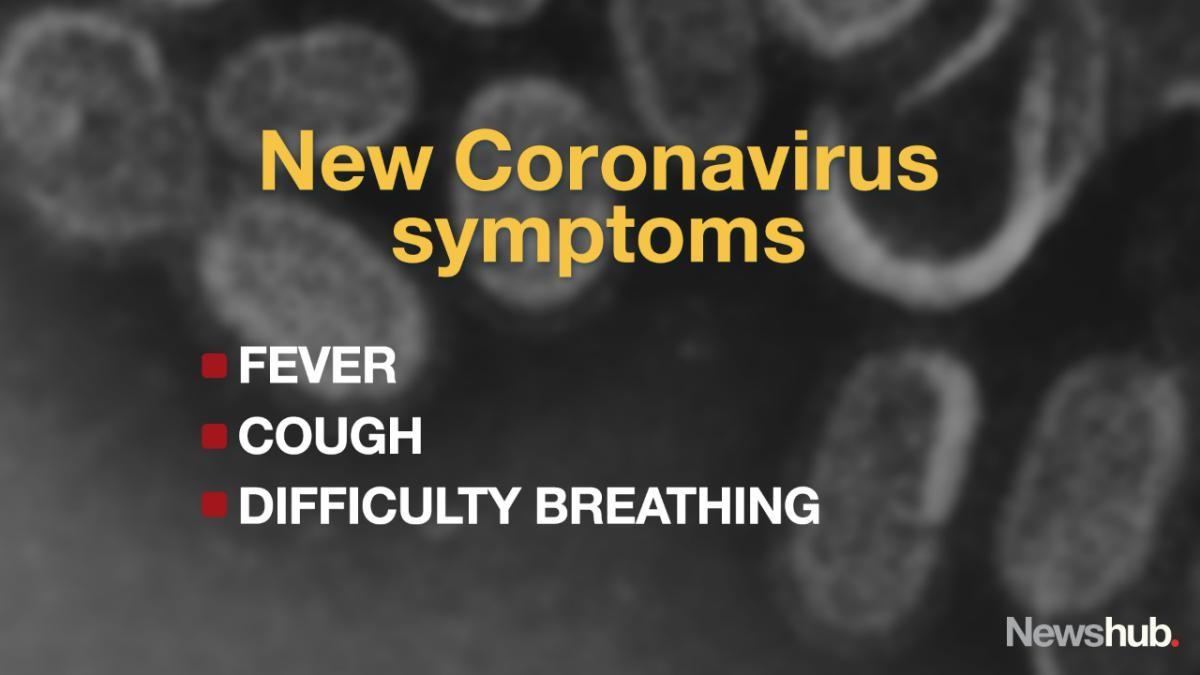The first case of the deadly coronavirus (COVID-19) was confirmed in New Zealand by Prime Minister Jacinda Ardern on Friday.
The infected individual is in their 60s and is in Auckland Hospital in a stable condition.
They are a New Zealand citizen who returned to the country from Iran via Bali, Indonesia on Tuesday.
On Friday Health Minister David Clark said the patient followed all the right procedures and called the coronavirus healthline when they became concerned.
Passengers who were on the same flight are urged to self-isolate.
Clark said they were not expecting a widespread outbreak of the virus, however Kiwis should take precautions.
A World Health Organisation (WHO) official has urged countries to begin preparing for a global pandemic as the novel coronavirus continues to spread.
What are the symptoms?
The virus appears to start with a fever, followed by a dry cough. After a week, patients will likely experience shortness of breath and may require hospitalisation.
Other symptoms include:
- headache
- muscle pain
- high temperature
- fatigue
- shortness of breath, breathing difficulties
- cough.
According to the WHO, symptoms may only start showing up to 14 days after being exposed to the virus. New Zealand is currently using 14 days as its incubation period, in which exposed individuals will be quarantined.
There has been some debate over the incubation period, with a handful of researchers suggesting some patients may not display symptoms until 24 days after being infected.
How deadly is the virus?
Based on data from 44,000 patients with the virus, around 81 percent of people will develop mild symptoms, 14 percent will develop severe secondary disease including pneumonia and 5 percent will become critically ill, leading to multi-organ failure, septic shock and respiratory failure.
While the statistics remain dubious, it appears roughly 2 percent of infected people will die from the disease. The death rate could be lower depending on the amount of unreported cases, or could become higher depending on the outcomes of those undergoing treatment.
The young and old are typically considered most at risk once infected. Children under two, people over 65 and those with underlying health conditions or weakened immune systems have a lower chance of surviving pneumonia.
How can it be treated?
While there is no vaccine for the coronavirus, its development is currently underway.
Patients with COVID-19 may receive support for their breathing and lung function, while high temperatures and discomfort will be treated with ibuprofen and aspirin. Some secondary infections may be treated with antibiotics.
How can I protect myself?
COVID-19 is spread through the droplets disseminated when an infected person coughs or sneezes. The UK's National Health Service (NHS) is advising doctors that the virus is also likely to be present in other bodily fluids such as blood, urine and faeces.
Hand hygiene is regarded as the most important line of defence. Wash hands frequently with soap and water. A hand sanitiser can be kept on your person and used between washes.
Other ways to protect yourself include:
- avoid touching the mouth, nose and eyes with unwashed hands
- washing your hands before eating
- carrying a hand sanitiser at all times
- being particularly mindful of touching your face after using public transport or going to the airport
- carry tissues at all times to cover the mouth and nose when coughing or sneezing (then dispose of it)
- not eating shared or communal food
- avoiding shaking hands, kissing cheeks
- regularly cleaning and sanitise commonly used surfaces and items, such as phones and keys
- avoiding close contact with people suffering from or showing symptoms of acute respiratory infection
- seeking medical attention if you feel unwell.

How can I protect my children?
Parents can lower their children's chances of catching or spreading viruses by:
- explaining how germs spread and the importance of hand and face hygiene
- maintaining the cleanliness of household surfaces, commonly used areas and door handles
- using household disinfectants - products touting the ability to kill 99.9 percent of bacteria and viruses are thought to be effective, but their claims are yet to be tested
- using clean cloths to sanitise each surface so germs aren't transferred from area to area
- ensuring the family doesn't share towels, toothbrushes, etc
- keeping the home dry and airy.
What do I do if I start feeling unwell?
Anyone who suspects they may have coronavirus or begins developing symptoms needs to contact their healthcare provider - do not show up at the clinic as it puts others at risk. Healthline can be contacted on 0800 611 116.
"It is important to mention recent travel to Wuhan [the epicentre of the disease] and any known contact with someone with severe acute respiratory illness who has been in Wuhan," the Ministry of Health says on its website.
Respiratory masks are 'last line of defense'
Health authorities have reiterated that washing your hands is the most important preventative measure.
"We worry about people feeling they're getting more protection from the mask than they really are," Dr Julie Vaishampayan, public health committee chairwoman for the Infectious Diseases Society of America, told the New York Times.
"Washing your hands and avoiding people who are ill is way more important than wearing a mask."
As noted by the NHS, paper face masks are generally not recommended as a preventative measure due to their limited protection. They are often ill-fitting and quickly become moist inside, providing an ideal environment for germs to thrive.
Masks are considered more useful when it comes to preventing droplets from coughing and sneezing from spreading to others in busy locations.



